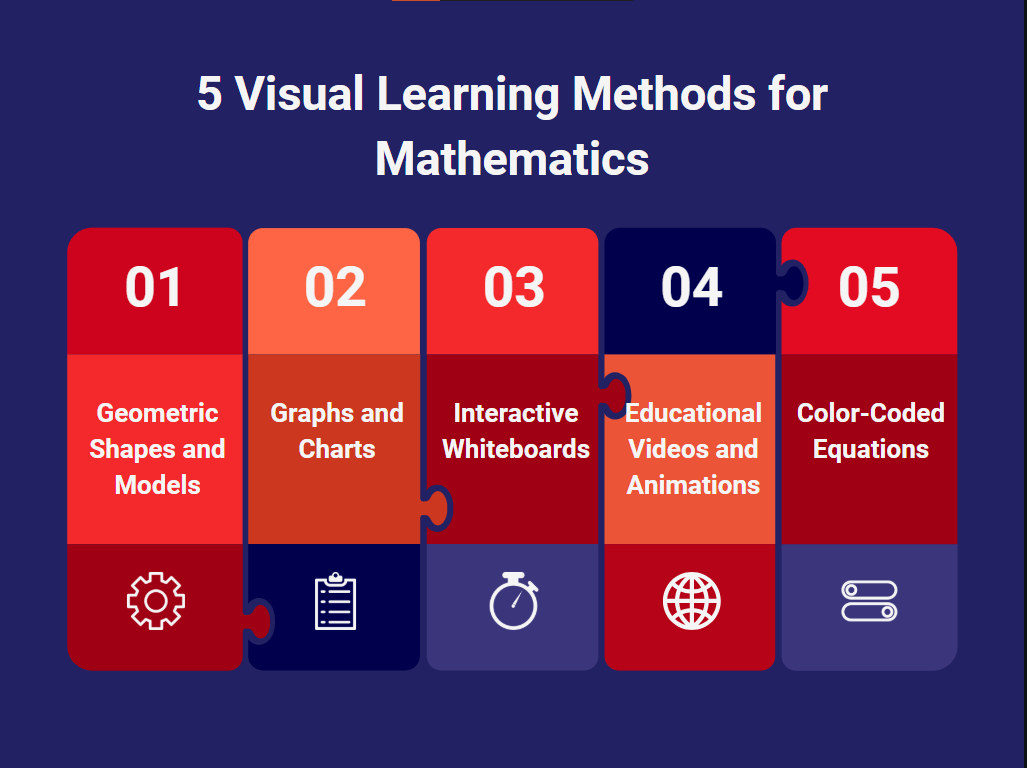Ways a Math Tutor Online Makes Math Fun
Ways a Math Tutor Online Makes Math Fun
From Raheel Bhatti
I'm raising money for a cause I care about, but I need your help to reach my goal! Please become a supporter to follow my progress and share with your friends.
Subscribe to follow campaign updates!
More Info
Learning becomes more enjoyable for children because interactive activities help them discover new ideas. The teaching approach of math as an interesting subject simplifies its complex nature for students learning at a basic level. The adoption of innovative learning methods enables students to overcome their fear of math while improving their interest in the subject.

Suitable teaching methods and available tools help students develop an appreciation for numbers while enhancing their problem-solving skills. The web enables students to work with math tutors who redesign conventional instruction to create exciting learning environments where they use such methods as games, real-world demonstrations, and interactive multimedia tools for better learning outcomes and self-assurance.
Making Mathematics More Fun
Math presents difficulties to numerous students because they find abstract mathematical concepts too complex. Research shows that enjoyable learning environments improve comprehension and retention. The benefits of a math tutor online become apparent as the online tutoring environment includes digital resources together with games and interactive assignments which make math lessons more exciting and enjoyable for students.
Learning activities led by students interactively explore concepts rather than forcing memorization through traditional methods. Tutors introduce enjoyable activities to mathematics learning because these methods help students perceive math as problem-solving rather than taskwork while fostering their confidence development throughout the learning process.
Gamify the Learning Process
Online math games add an element of excitement to lessons. Platforms like Prodigy or Coolmath Games make learning competitive and rewarding. Kids earn points, unlock levels, and challenge themselves while reinforcing core math skills.
Gamification also improves motivation. When students associate math with fun challenges, they engage more willingly. A math tutor online can incorporate these games into lessons, ensuring that kids practice essential concepts without feeling pressured.
Use Real-Life Applications
Math is everywhere, from grocery shopping to cooking measurements. Tutors can use real-world scenarios to make abstract concepts tangible. For example, teaching fractions through a pizza-slicing activity helps children grasp the idea effortlessly.
By showing how math applies to everyday life, students see its value beyond the classroom. This practical approach encourages curiosity and helps them retain knowledge better.
Introduce Interactive Math Apps
Apps like Khan Academy, Mathway, and SplashLearn turn learning into a hands-on experience. These apps provide instant feedback, adaptive lessons, and interactive exercises tailored to a child’s progress.
With an online tutor guiding the process, kids get structured learning while enjoying the flexibility of technology. These apps also help reinforce concepts between tutoring sessions, strengthening understanding over time.
Incorporate Music and Rhymes
Songs and rhymes make memorization easier, especially for younger kids. Many online tutoring sessions include number songs, multiplication jingles, or catchy mnemonic devices to help children remember formulas and patterns.
Music engages multiple senses, making learning more effective. It transforms repetitive exercises into enjoyable experiences, making kids more likely to retain what they learn.
Use Virtual Manipulatives
Online whiteboards, digital cubes, and virtual number lines provide visual representations of math problems. Digital tools help kids explore geometry, algebra, and arithmetic interactively.

Virtual manipulatives bridge the gap between abstract concepts and concrete understanding. A math tutor online can guide students in using these tools effectively, reinforcing problem-solving skills in a visually engaging way.
Encourage Friendly Competition
Competition can be a strong motivator when used positively. Tutors can organize math challenges, quizzes, or timed problem-solving races to encourage engagement.
When kids compete in a supportive environment, they push themselves to improve. The excitement of beating their personal best or challenging a friend makes learning more dynamic.
Relate Math to Their Interests
A child who loves sports can learn statistics through game scores, while an art enthusiast can explore symmetry and patterns. Online tutors personalize lessons by connecting math to topics kids enjoy.
This approach makes math relatable, keeping students engaged. By aligning lessons with their passions, tutors help children develop a natural curiosity for numbers.
Break Lessons into Short, Engaging Segments
Long lectures can be overwhelming, especially for younger learners. Online tutors break concepts into bite-sized lessons, using videos, quizzes, and discussions to maintain interest.
Shorter sessions prevent boredom and improve focus. When children grasp small chunks of information, they build confidence without feeling overwhelmed.
Introduce Storytelling in Math
Math stories turn abstract numbers into relatable adventures. Books like “The Grapes of Math” or “Sir Cumference and the First Round Table” use storytelling to teach concepts in a fun way.
Tutors can incorporate storytelling into lessons, making math feel less like a set of rules and more like a journey. This narrative approach helps children remember concepts through context.
Encourage Hands-On Learning
Physical activities, even in virtual sessions, make math interactive. Tutors can suggest DIY projects, such as creating graphs with colored beads or measuring ingredients for a baking lesson.
When kids engage in hands-on learning, they experience math in action. These activities reinforce lessons in a tangible way, making abstract ideas easier to grasp.
Offer Personalized Learning Paths
Every child learns differently. Online tutors customize lesson plans to match individual strengths, weaknesses, and learning styles.
Adaptive teaching ensures that students receive support where they need it most. This tailored approach prevents frustration and builds confidence in tackling math problems.
Provide Immediate Feedback and Encouragement
Instant feedback helps students correct mistakes before they become habits. Online tutors use interactive tools that highlight errors in real time, allowing for immediate improvement.
Encouragement plays a crucial role in learning. A tutor who celebrates small victories boosts a child’s confidence, making them more willing to take on challenges.
Explore Math-Based Board Games
Games like Monopoly, Yahtzee, or Sudoku strengthen math skills while providing entertainment. Tutors can recommend these games for family play, reinforcing concepts outside of lessons.
Board games make learning social and collaborative. Kids practice math in a relaxed setting, improving their skills without even realizing it.
Incorporate Art and Creativity
Geometry and symmetry naturally blend with art. Drawing tessellations, creating mandalas, or designing patterns introduces math in a visually engaging way.
Tutors who integrate creative projects into math lessons help kids develop an appreciation for numbers beyond calculations. This fusion of math and art makes learning more enjoyable.
Encourage Journaling and Reflection
Writing about math experiences, challenges, and discoveries reinforces understanding. Tutors can ask students to keep a math journal to document what they learn.
Journaling allows kids to process new concepts at their own pace. This habit strengthens retention and helps them track their progress over time.
Set Achievable Goals and Celebrate Milestones
Small victories build confidence. Tutors help students set short-term goals, such as mastering multiplication tables or solving a specific number of problems within a time frame.
Celebrating achievements, no matter how small, keeps kids motivated. Acknowledging progress fosters a growth mindset, making math feel rewarding rather than daunting.
FAQs
They use interactive tools, games, and real-world applications to make learning dynamic. A structured yet flexible approach keeps kids interested while reinforcing key concepts.
Online tutors offer personalized learning, flexible scheduling, and access to diverse teaching resources. This approach enhances comprehension and boosts confidence in math.
Encourage math-related games, incorporate real-life applications, and maintain open communication with the tutor. A positive attitude toward math at home reinforces a child’s progress.
Conclusion
A child needs creative approaches together with interesting activities to learn math successfully. They also need proper educational assistance. With help from an online math tutor, students can turn their traditional lessons into interesting learning sessions that develop their problem-solving and self-assurance abilities. Effective educational strategies such as games, storytelling, and experiential learning help students see math as an engaging challenge rather than a difficult subject.
The combination of 16 methodologies allows parents and tutors to build enduring number enthusiasm for their students. The ultimate aim goes beyond grade improvement because we aim to develop a learning attitude that combines fun and substance.
Campaign Wall
Join the Conversation
Sign in with your Facebook account or email.
